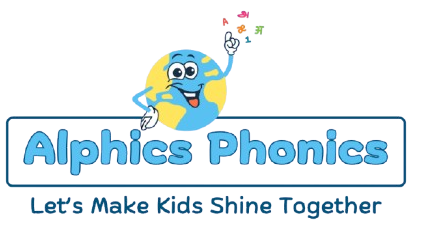Reading maketh a Man;
Writing maketh a Full Man;
Conversation maketh a Perfect Man.
Phonological awareness is undeniably a crucial precursor to phonics instruction. Generally, phonological awareness is defined as the ability to recognize and manipulate the sounds within spoken language. This involves the capacity to identify and work with individual sounds (phonemes), syllables, and rhyming words.
Phonological awareness is essential for the development of reading and writing progress in children for several reasons:
(i) It lays the foundation for phonics by helping children understand the relationship between sounds and letters.
(ii) It develops decoding skills, enabling children to decode words more effectively through the recognition of individual sounds.
(iii) It enhances reading fluency and accuracy.
The skills associated with phonological awareness include:
- Rhyming: The ability to identify words that rhyme, such as bat, cat, and mat.
- Syllable awareness: The ability to recognize syllables in words, for example, ta/ble, ca/mel, and ba/na/na.
- Phoneme isolation: The ability to identify individual sounds in words, such as:
- "cat": /c/ /a/ /t/
- "ship": /sh/ /i/ /p/
- Phoneme manipulation: The ability to add, delete, or substitute sounds in words.
- Adding sounds:
- Adding /s/ to the beginning of "pot" to create "spot".
- Adding /t/ to the end of "pin" to create "pint".
- Deleting sounds:
- Removing /s/ from "spot" to get "pot".
- Removing /t/ from "pint" to get "pin".
- Substituting sounds:
- Replacing /c/ in "cat" with /b/ to get "bat".
- Replacing /p/ in "pin" with /w/ to get "win".
- Adding sounds:
Vocabulary development occurs as children, through phonics courses, are enabled to read a large number of words, leading to a drastic improvement in their reading progress.
Instructional Strategies at Alphics Phonics
Our trainers are highly skilled in employing strategies to work with young children, including:
- Rhyming games: Utilizing rhyming words in games and activities.
- Word families: Exploring words that share similar sound patterns.
- Sound sorting: Categorizing words based on sound patterns.
- Oral language activities: Engaging children in activities that emphasize sound awareness.
Participation in phonics courses enables children to build a strong foundation for successful reading and spelling.
Phonics is a fundamental skill that aids children in various ways:
- Crack the code: Developing an understanding of the relationship between sounds and letters.
- Decode words: Reading words accurately by blending sounds.
- Spell correctly: Writing words correctly by segmenting sounds.
Phonics instruction is beneficial for students across different age groups, including older students (3 to 14 years), in several ways:
- Support for struggling readers: Phonics instruction is particularly helpful for older children who have difficulty with reading, assisting them in addressing gaps in their phonics knowledge.
- Improved reading skills: Phonics helps older children decode unfamiliar words, leading to improvements in reading accuracy and fluency. It also builds students' confidence.
- Enhanced spelling abilities: Understanding sound-letter relationships enables older children to spell words more accurately, reducing reliance on memorization.
- Increased vocabulary: Phonics instruction aids older children in decoding and reading more complex words, thereby expanding their vocabulary. This enables children to decode challenging biological terms in their higher-level classes.
- Better comprehension: As older children become more proficient in decoding words, they can concentrate on understanding the meaning of texts.
Overall, phonics instruction contributes to children becoming more confident and proficient readers, positively influencing their academic performance and overall learning. We have also successfully trained children with partial autism and improved their reading ability.
Written by:

Mrs. Usha Devi
Admin @ Alphics Phonics


